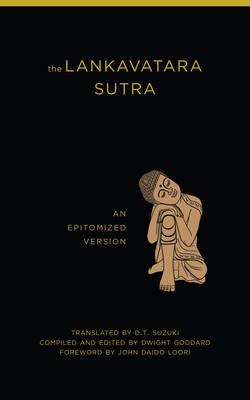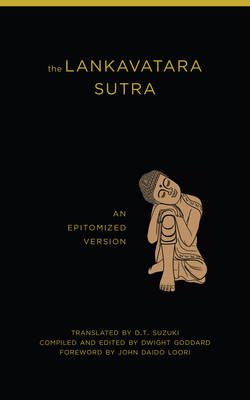
- Afhalen na 1 uur in een winkel met voorraad
- Gratis thuislevering in België vanaf € 30
- Ruim aanbod met 7 miljoen producten
- Afhalen na 1 uur in een winkel met voorraad
- Gratis thuislevering in België vanaf € 30
- Ruim aanbod met 7 miljoen producten
Omschrijving
The Lankavatara Sutra, according to tradition, contains the actual words of the Buddha spoken in Sri Lanka (Ceylon). Nothing is known about its author, the time of its composition, or its original form. Scholars have tended to date the original compilation to early in the first century, and the written work to the fourth century of the Common Era. The sutra was foundational in establishing the central tenets of Mahayana Buddhism, and especially Zen. The Lankavatara was virtually unknown in the West until D.T. Suzuki's Studies in the Lankavatara Sutra was published in 1929. Suzuki's subsequent translation and publication of The Lankavatara Sutra in 1932 earned him the respect and gratitude of scholars and Buddhists worldwide. Professor Suzuki felt that an editing of the Lankavatara, for the sake of easier reading, would make the sutra more widely accessible. He encouraged the editor Dwight Goddard to take on the challenge, and the publication of the 'epitomised' version appeared in print also in 1932, under the title, Self-Realization of Noble Wisdom: The Lankavatara Sutra.
Specificaties
Betrokkenen
- Auteur(s):
- Uitgeverij:
Inhoud
- Aantal bladzijden:
- 128
- Taal:
- Engels
Eigenschappen
- Productcode (EAN):
- 9781939681003
- Verschijningsdatum:
- 6/01/2015
- Uitvoering:
- Paperback
- Formaat:
- Trade paperback (VS)
- Afmetingen:
- 127 mm x 201 mm
- Gewicht:
- 158 g

Alleen bij Standaard Boekhandel
Beoordelingen
We publiceren alleen reviews die voldoen aan de voorwaarden voor reviews. Bekijk onze voorwaarden voor reviews.











